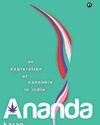
NOVEMBER 1986
Kemkharan, September 1965. An Indian military convoy rumbles towards the fighting zone. Suddenly, two Pakistani Sabre jets dropped out of the sky and scream in to attack. As bombs begin exploding around him, Kishan Baburao Hazare, driving a truckful of soldiers, speeds up. But when a splinter grazes his forehead, he ducks below the dashboard and jams on the brakes with his hands. The windscreen shatters and bullets riddle the man next to Hazare. The 25-year-old driver tumbles out of his truck and prays fervently as the two Sabers strafe the convoy again. When they finally disappear, dozens of jawans lie dead. Of the few survivors, only Hazare escapes serious injury. “You saved me, God,” Hazare says over and over again. “But why?”
Recently, at the village of Ralegaon Shindi, I discovered why God saved Baburao Hazare 11 years ago. Ralegaon Shindi wasn't very different from hundreds of other villages in this arid part of Maharashtra's Ahmadnagar district. With water available only during the monsoons, its farmers could barely grow one crop a year, and 70 per cent of the village's 315 families lived in abject poverty. Indeed, Ralegaon Shindi's most distinctive feature was its 40 illicit distilleries that made the village a popular haunt for drunks and gamblers. Thefts and brawls were commonplace.
Since he returned to Ralegaon Shindi in 1975, Hazare has spearheaded a movement that has changed all this forever. Today, Ralegaon Shindi is brisk and prosperous, signs of rural modernity abound. Its fields are heavy with grain. There's a bank, a boarding school, biogas plants. Some of its farmers drive around on mopeds.
Denne historien er fra April 2022-utgaven av Reader's Digest India.
Start din 7-dagers gratis prøveperiode på Magzter GOLD for å få tilgang til tusenvis av utvalgte premiumhistorier og 9000+ magasiner og aviser.
Allerede abonnent ? Logg på
Denne historien er fra April 2022-utgaven av Reader's Digest India.
Start din 7-dagers gratis prøveperiode på Magzter GOLD for å få tilgang til tusenvis av utvalgte premiumhistorier og 9000+ magasiner og aviser.
Allerede abonnent? Logg på

ME & MY SHELF
Siddharth Kapila is a lawyer turned writer whose writing has focussed on issues surrounding Hinduism. His debut book, Tripping Down the Ganga: A Son's Exploration of Faith (Speaking Tiger) traces his seven-year-long journey along India's holiest river and his explorations into the nature of faith among believers and skeptics alike.

EMBEDDED FROM NPR
For all its flaws and shortcomings, some of which have come under the spotlight in recent years, NPR makes some of the best hardcore journalistic podcasts ever.

ANURAG MINUS VERMA PODCAST
Interview podcasts live and die not just on the strengths of the interviewer but also the range of participating guests.

WE'RE NOT KIDDING WITH MEHDI & FRIENDS
Since his exit from MSNBC, star anchor and journalist Mehdi Hasan has gone on to found Zeteo, an all-new media startup focussing on both news and analysis.

Ananda: An Exploration of Cannabis in India by Karan Madhok (Aleph)
Karan Madhok's Ananda is a lively, three-dimensional exploration of India's past and present relationship with cannabis.

I'll Have it Here: Poems by Jeet Thayil, (Fourth Estate)
For over three decades now, Jeet Thayil has been one of India's pre-eminent Englishlanguage poets.

Orbital by Samantha Harvey (Penguin Random House India)
Samantha Harvey became the latest winner of the Booker Prize last month for Orbital, a short, sharp shock of a novel about a group of astronauts aboard the International Space Station for a long-term mission.

She Defied All the Odds
When doctors told the McCoombes that spina bifida would severely limit their daughter's life, they refused to listen. So did the little girl

DO YOU DARE?
Two Danish businesswomen want us to start eating insects. It's good for the environment, but can consumers get over the yuck factor?

Searching for Santa Claus
Santa lives at the North Pole, right? Don't say that to the people of Rovaniemi in northern Finland